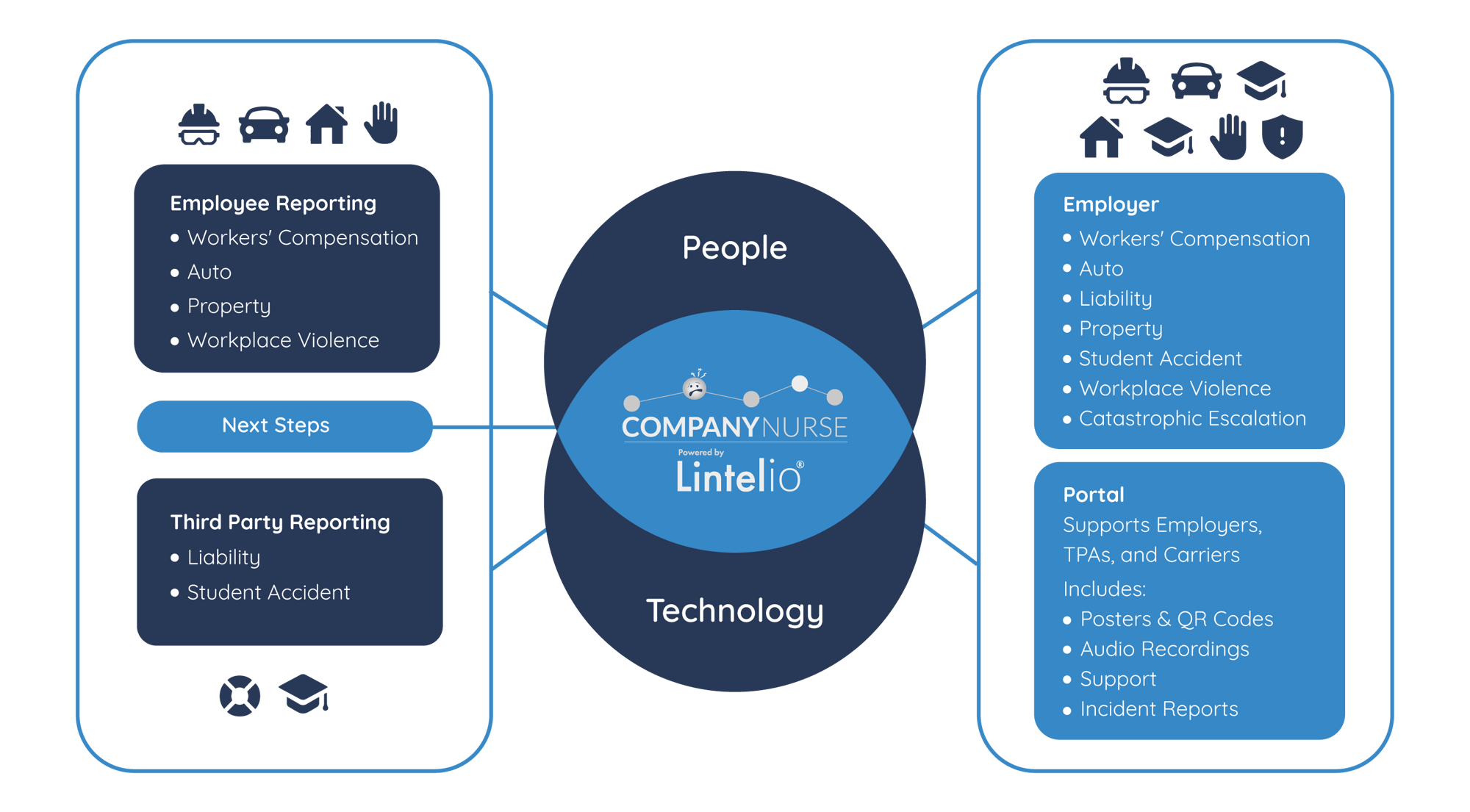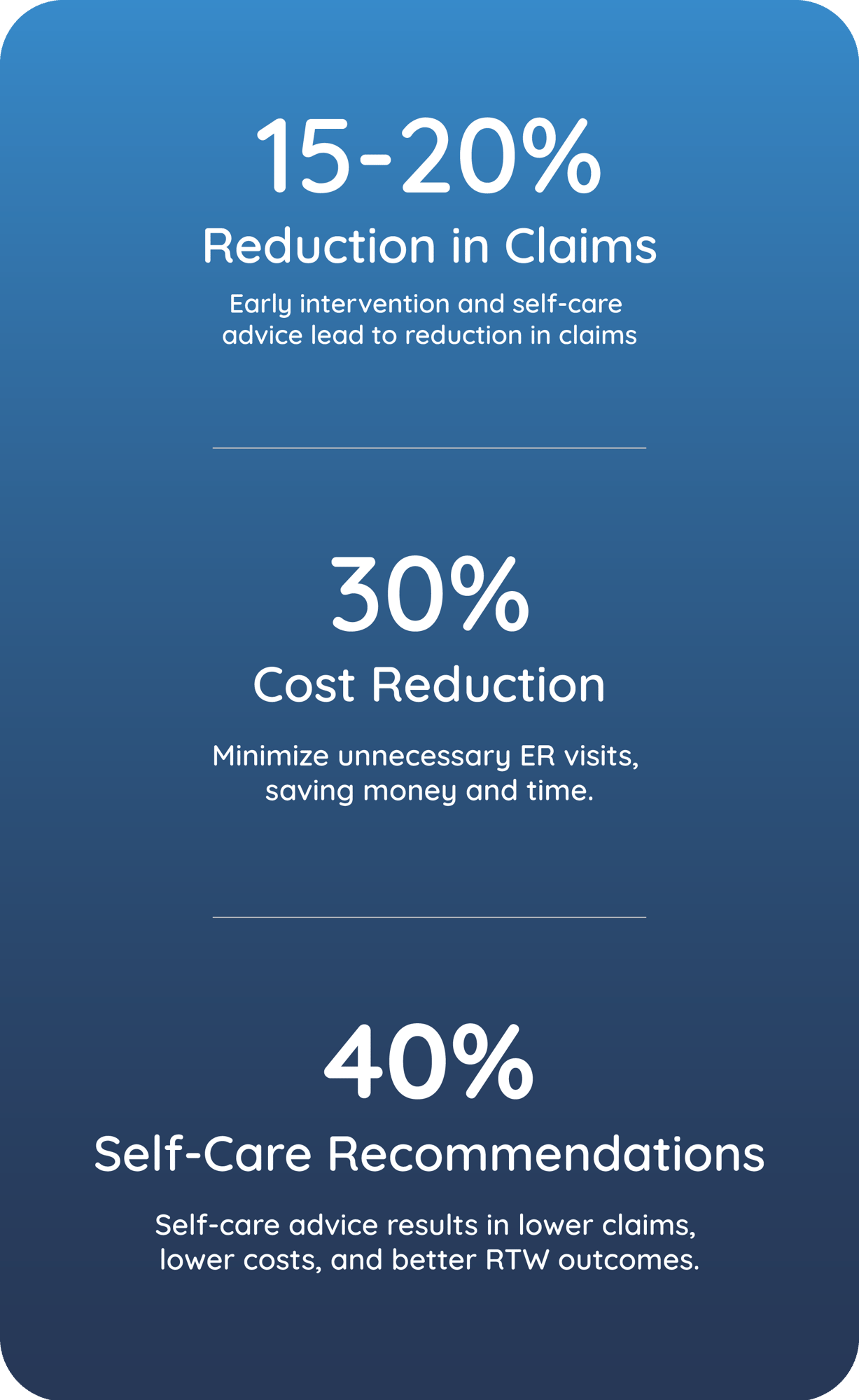Company Nurse, your premier workplace injury reporting and nurse triage service.
Powered by Lintelio, the industry's best intake and communication technology platform.
We’ve created the first unified approach of its kind in the workplace incident and nurse triage arena.
We aren’t just transforming
the incident reporting process.
We’re perfecting it.
Company Nurse powered by Lintelio is bridging the gaps between advanced security, human compassion, and cutting-edge technology to drive outstanding outcomes for all parties involved in your claims management process.
Our formula for Experience Excellence
Compassionate Care + Digital Empathy + Swift Delivery
Our Unified Approach
You deserve a simple, secure, and reliable intake, triage, and reporting platform that offers unique customizations, eliminates administrative burdens, and speeds the flow of information.
Best-in-industry technology + the best of the right human touch + advanced security
Here's what sets Company Nurse powered by Lintelio apart:


Pillars of Success
Collaboration
We are your partner.
We are your partner.
- Configurability
- Responsiveness
- 100% Focus
Future-Proof Technology
Solutions designed for adaptability.
Solutions designed for adaptability.
- Security
- Agility
- Omni-Channel
- Automation
Reputation
Renowned market leader investing in people and technology.
Renowned market leader investing in people and technology.
- Reliability
- Accountability
- Trustworthiness
Outcomes We Are Proud Of
.png?width=2000&height=598&name=Results%20Graphic%20-%20New%20Website_1%20(1).png)

